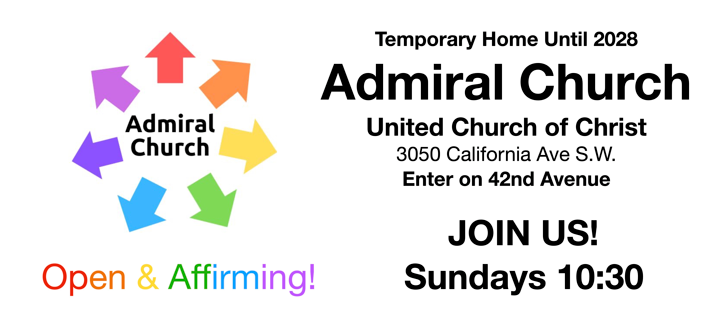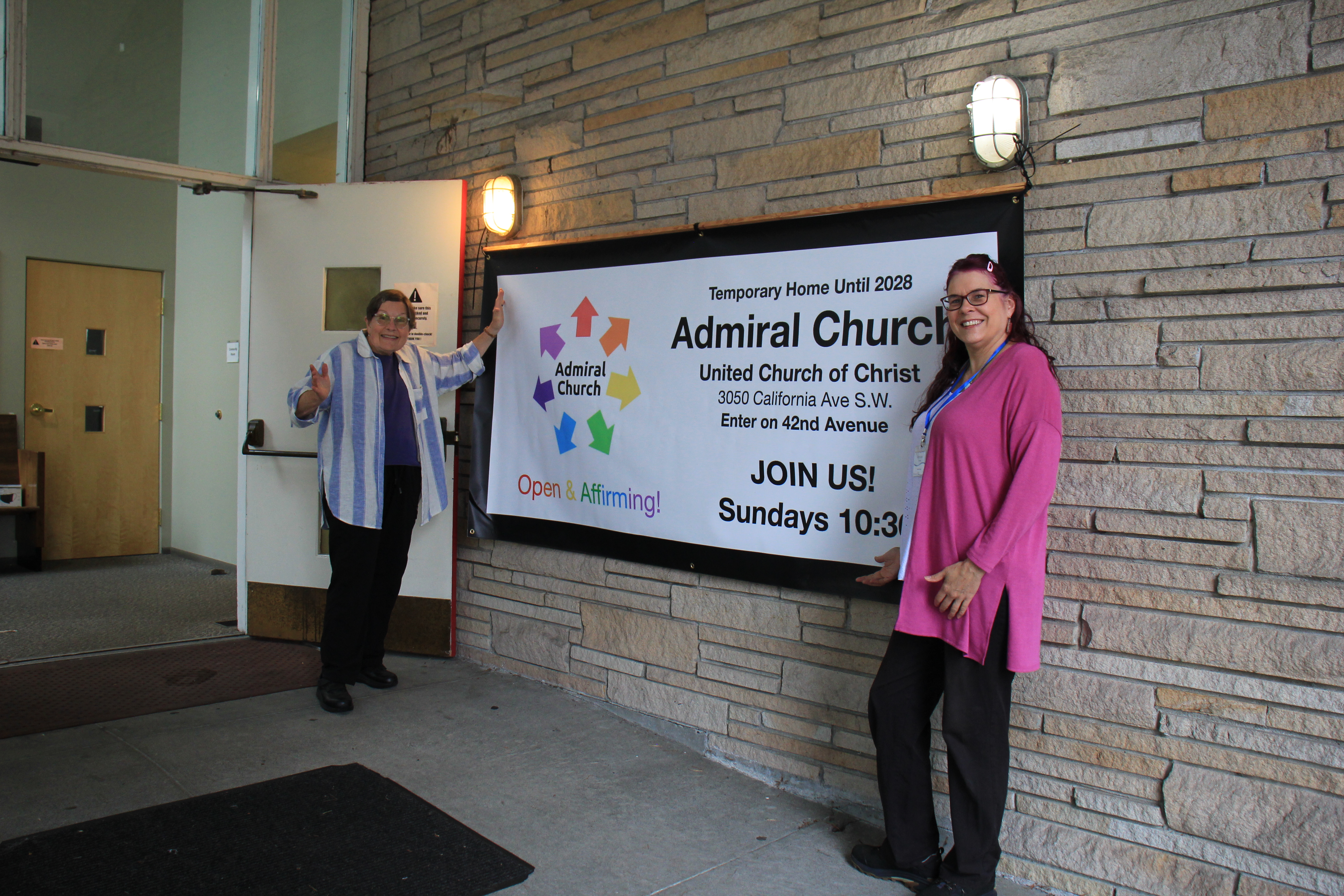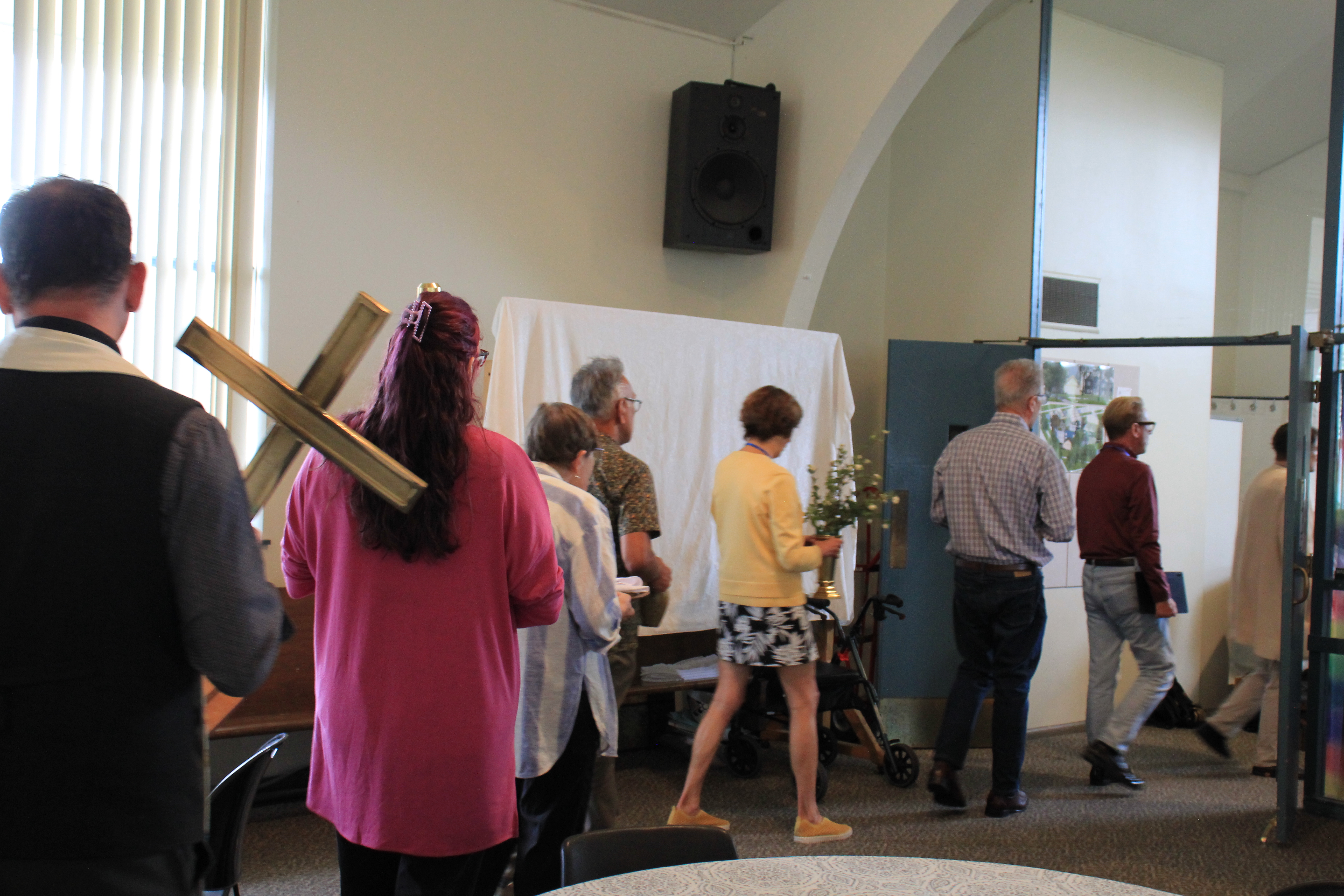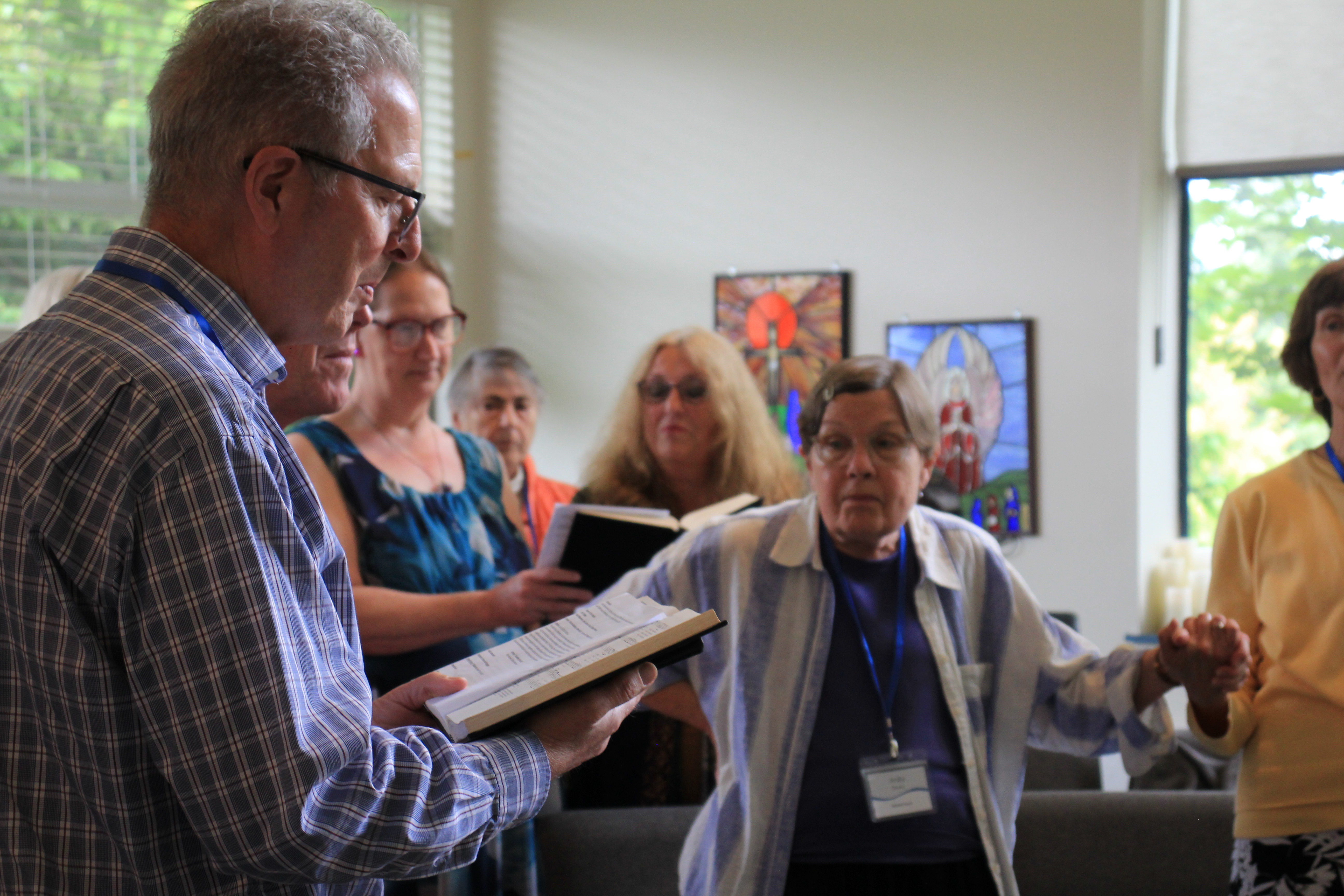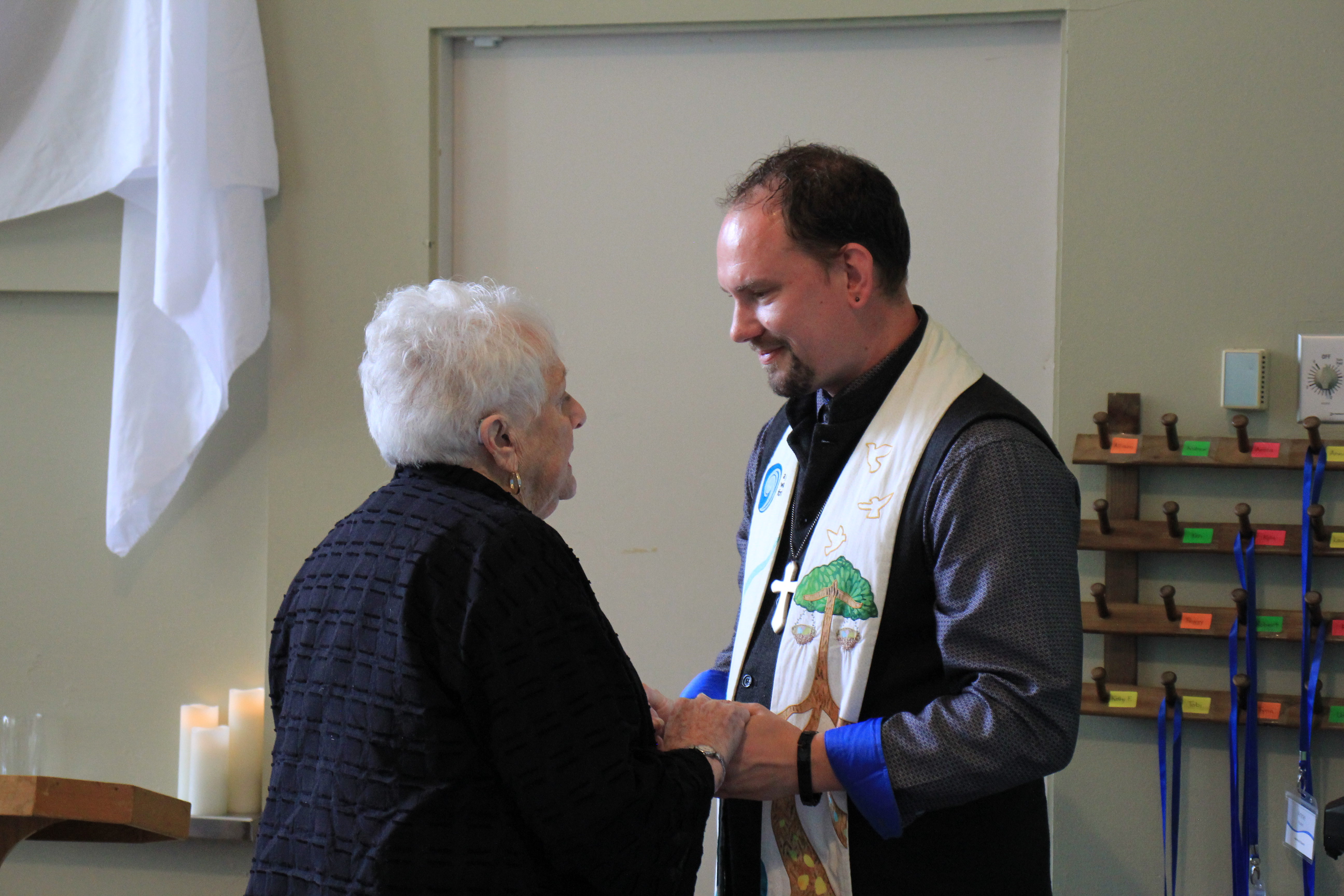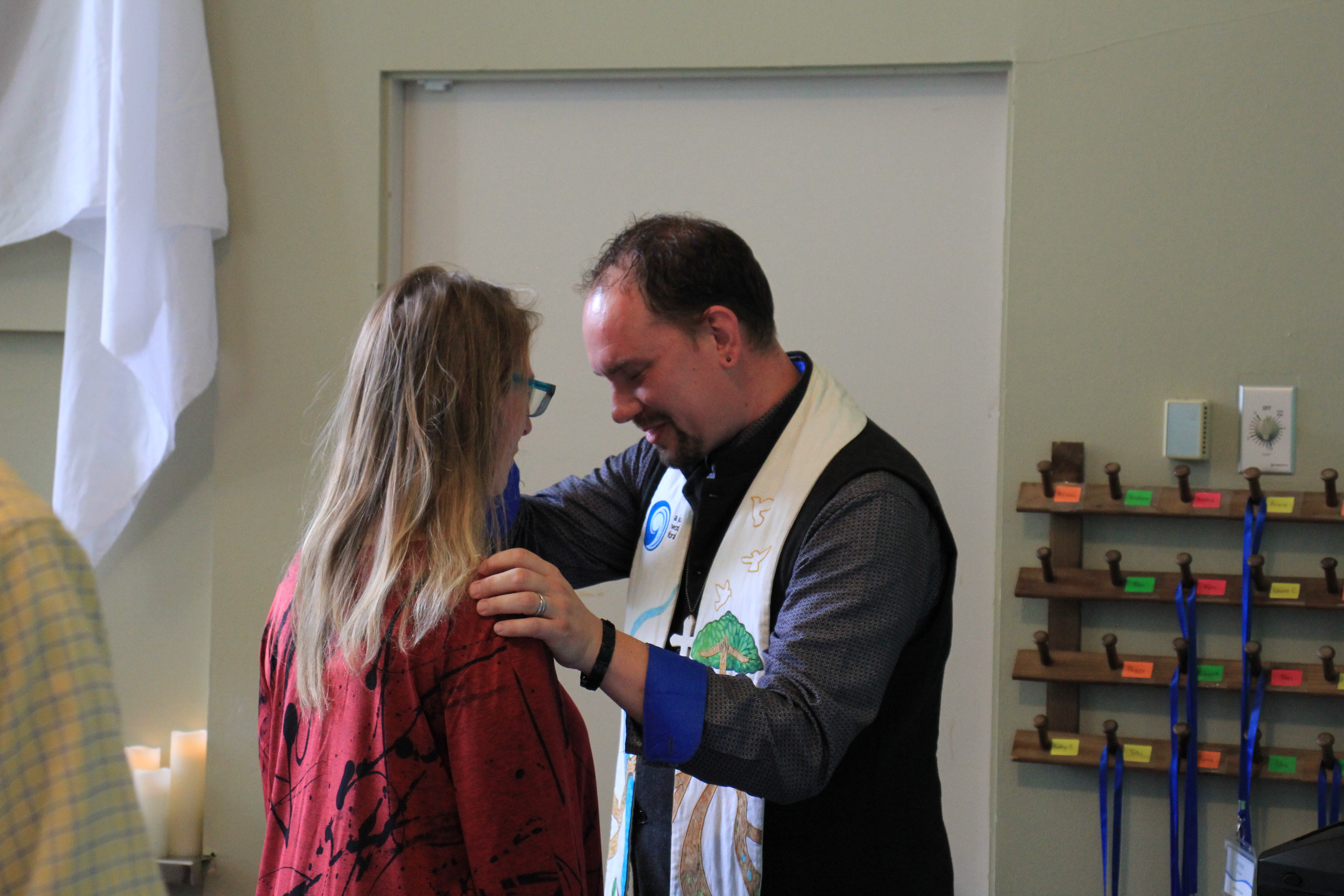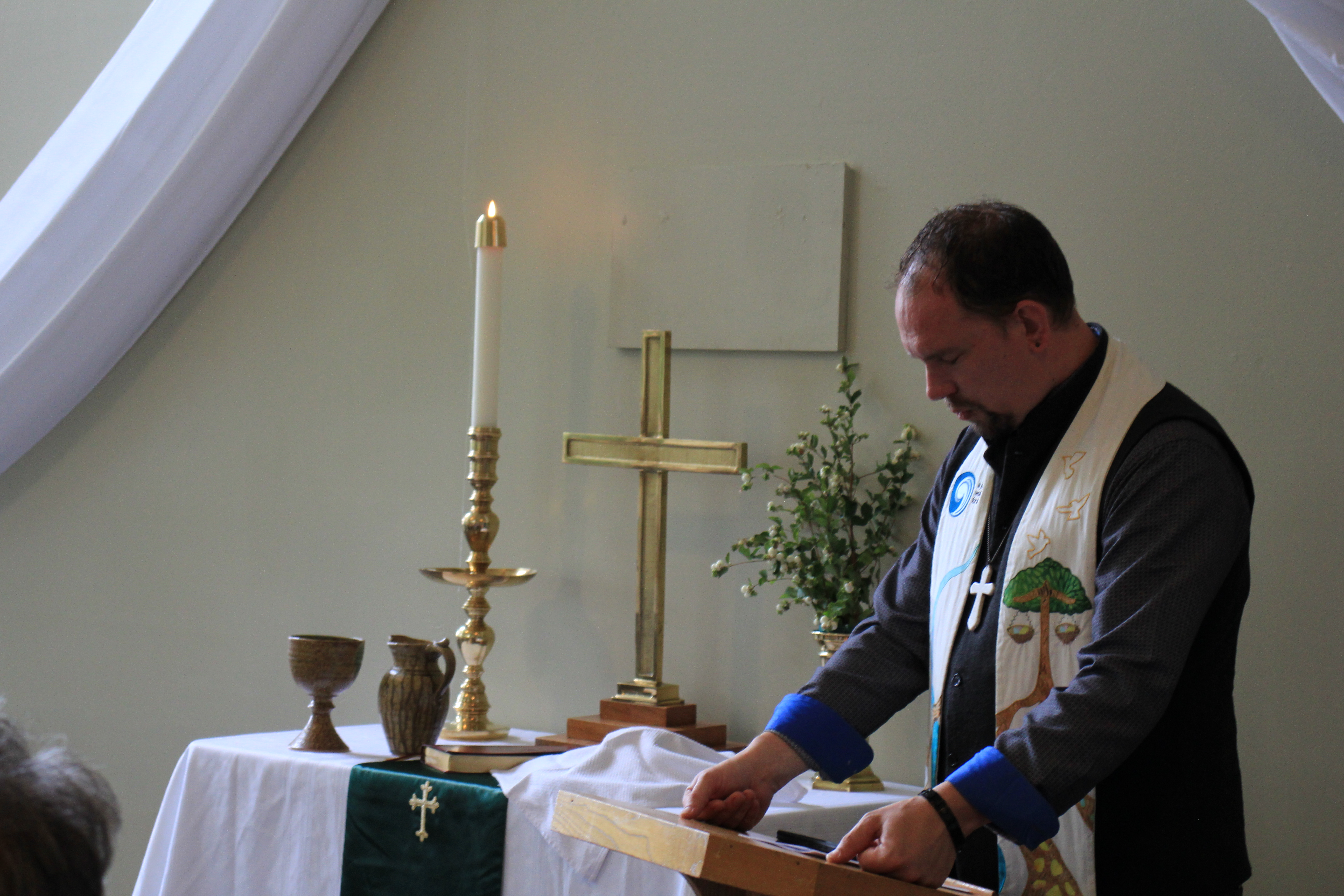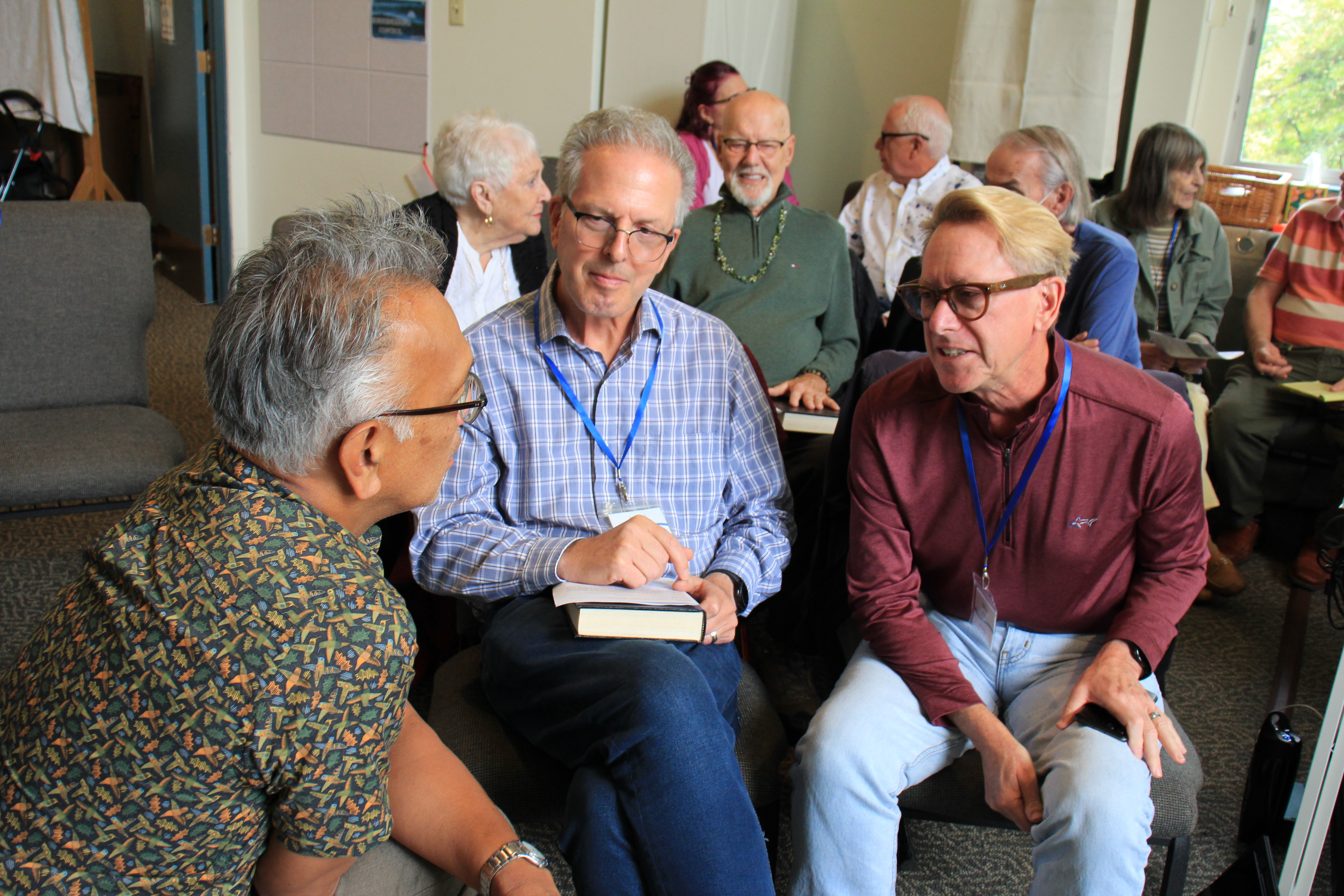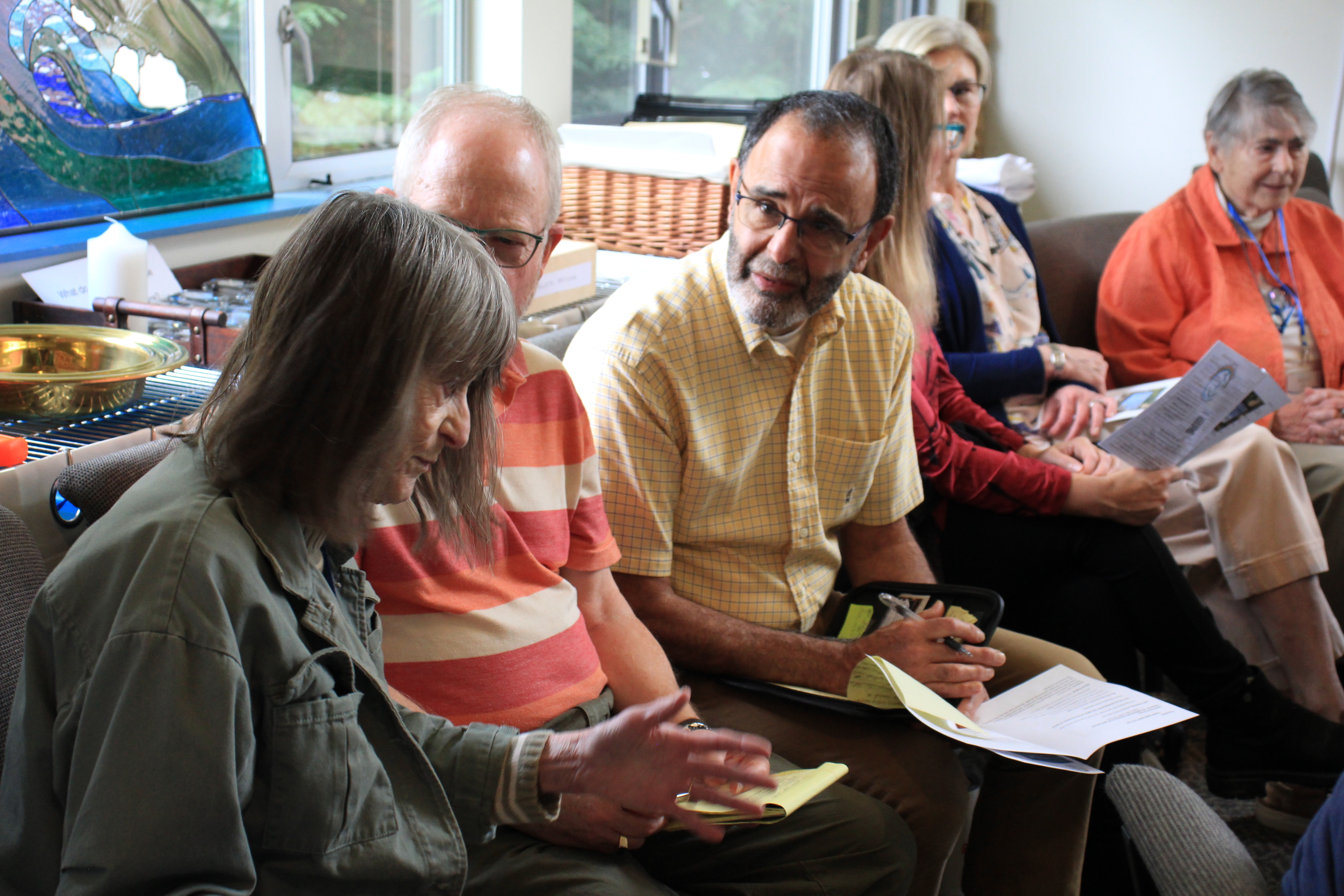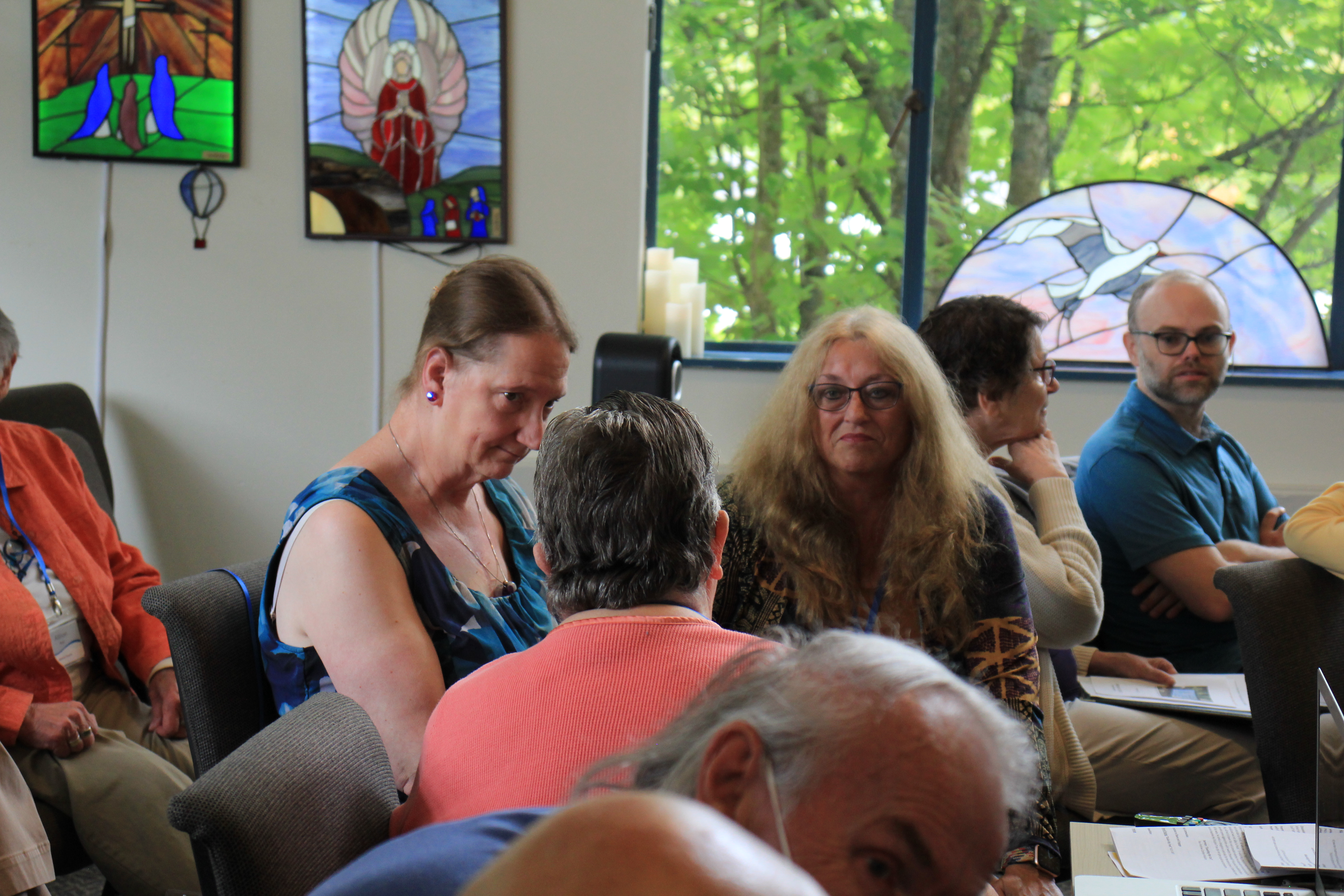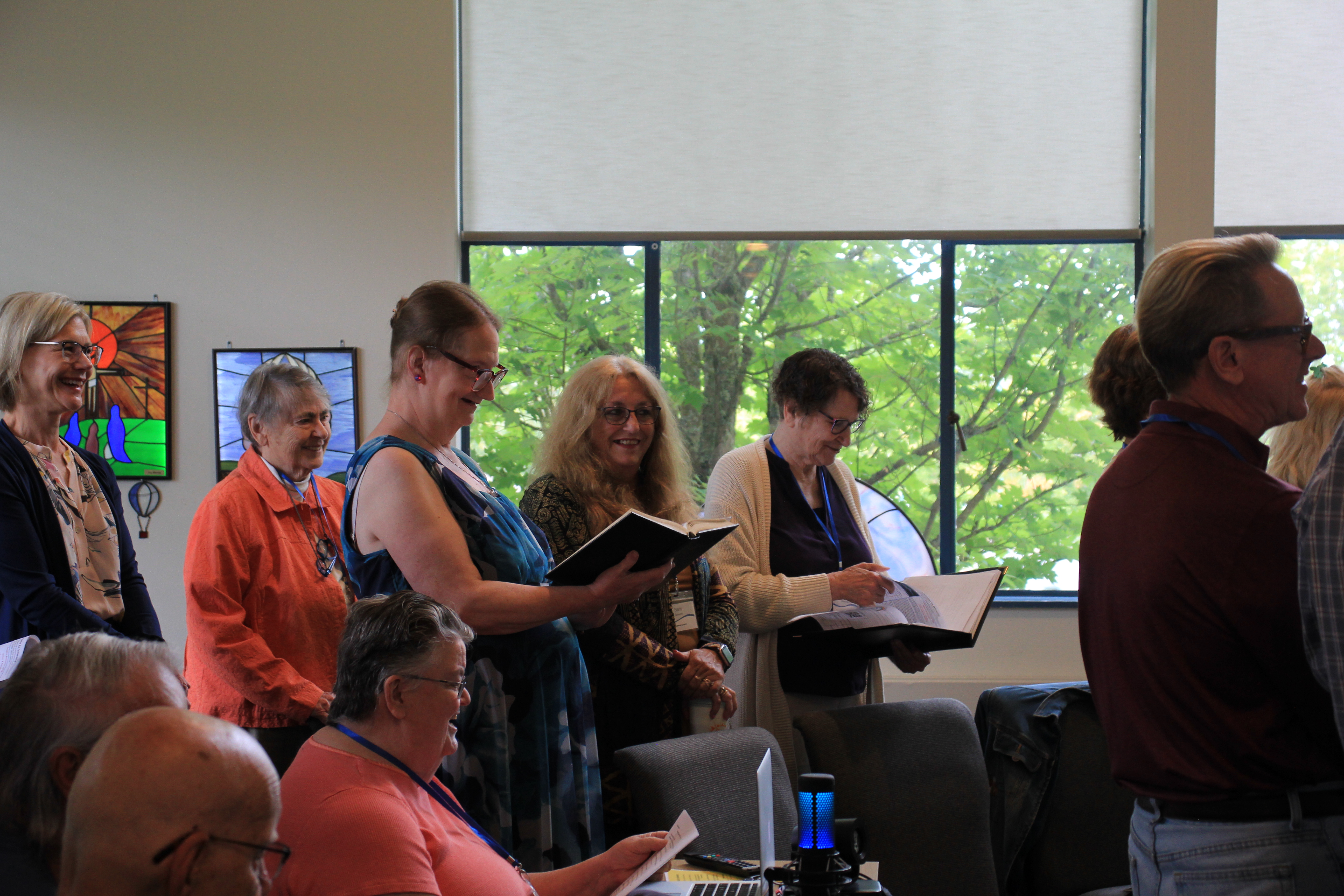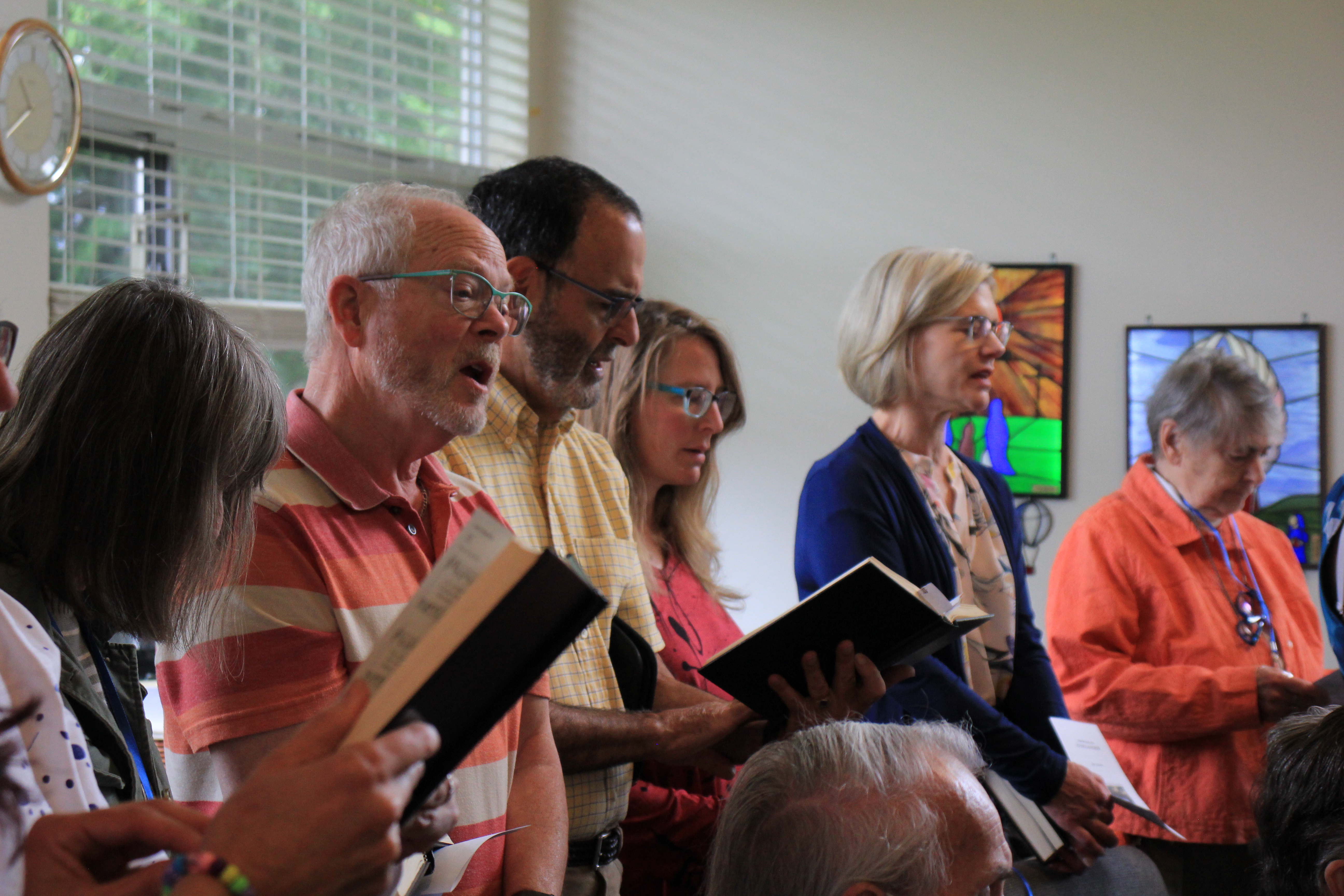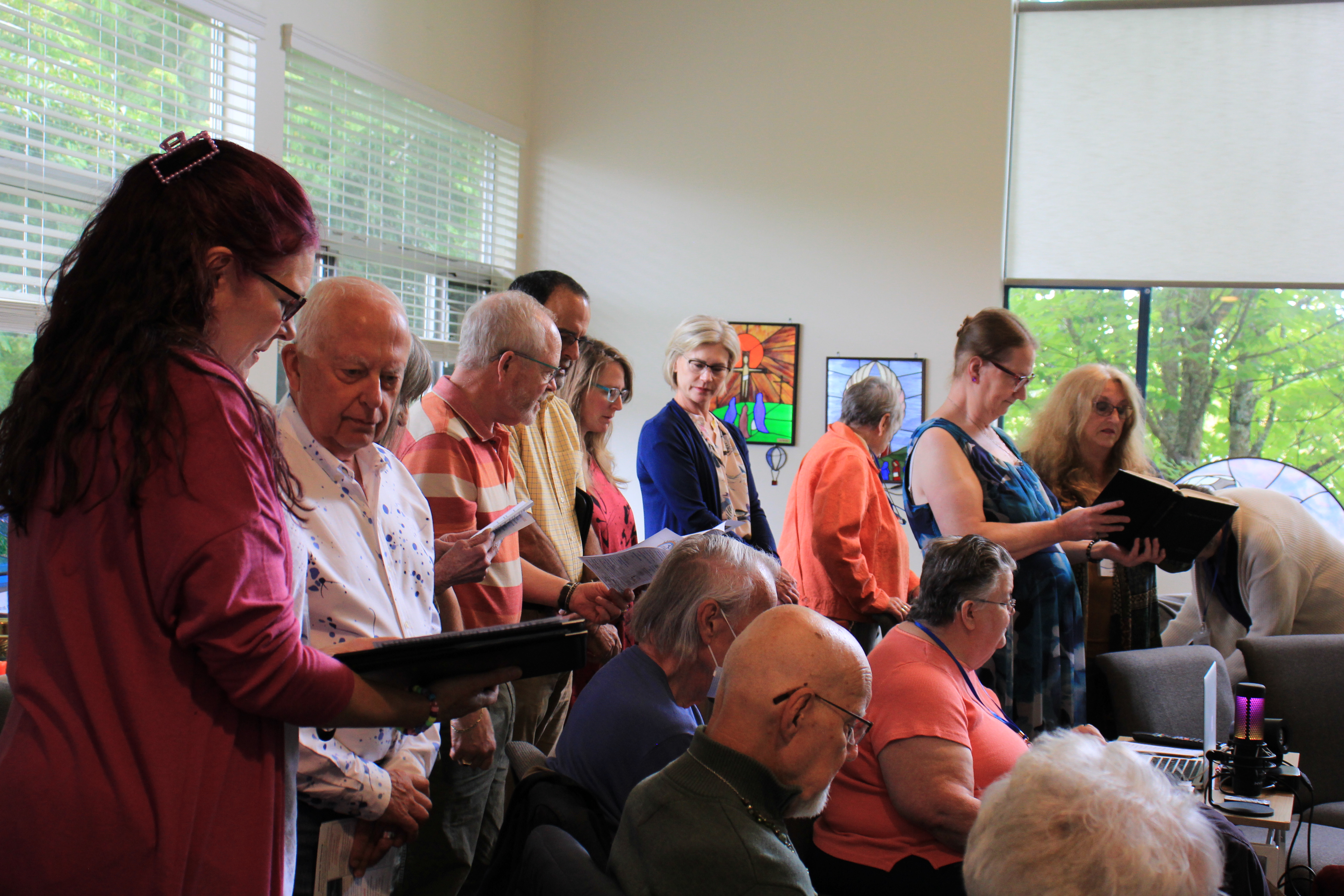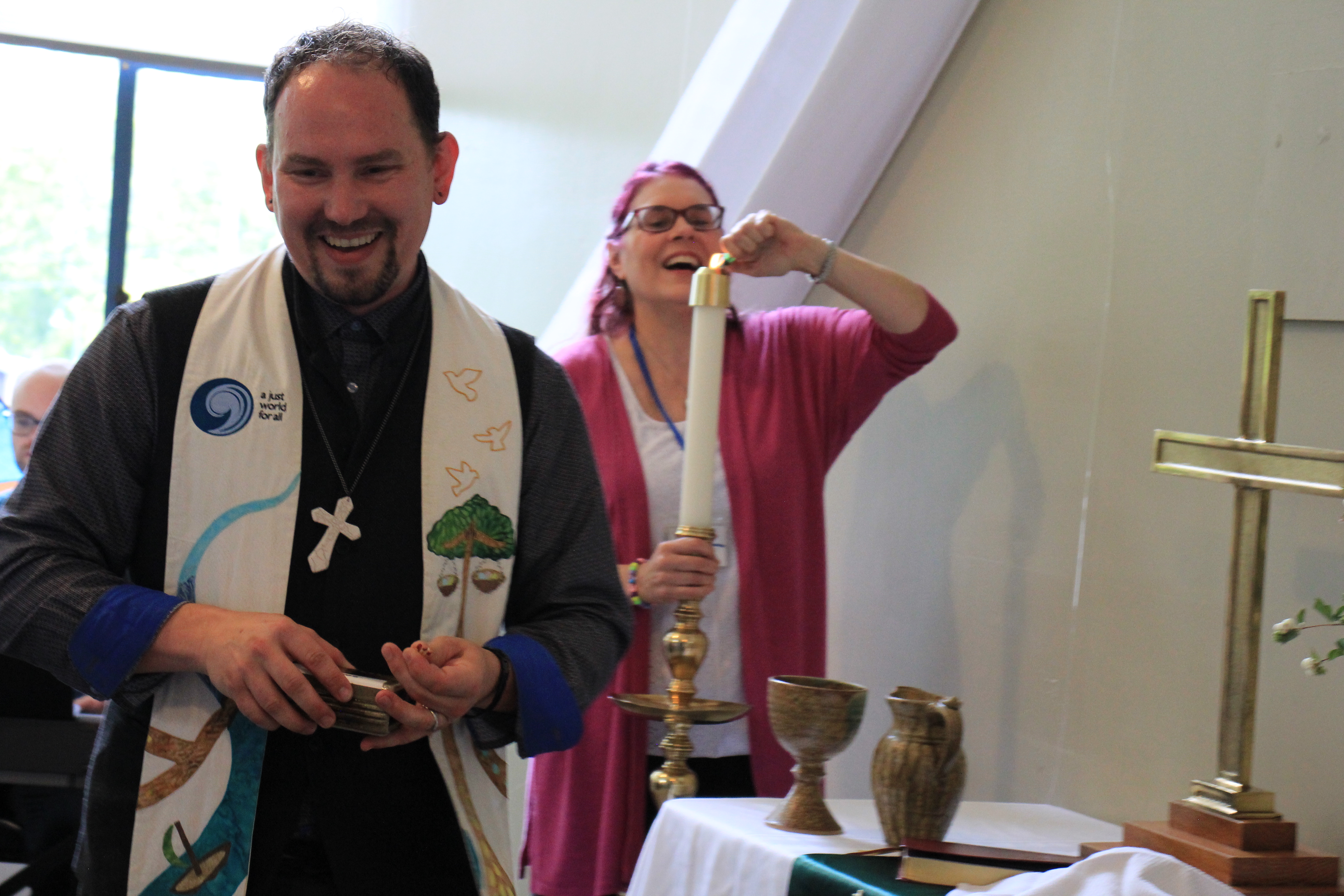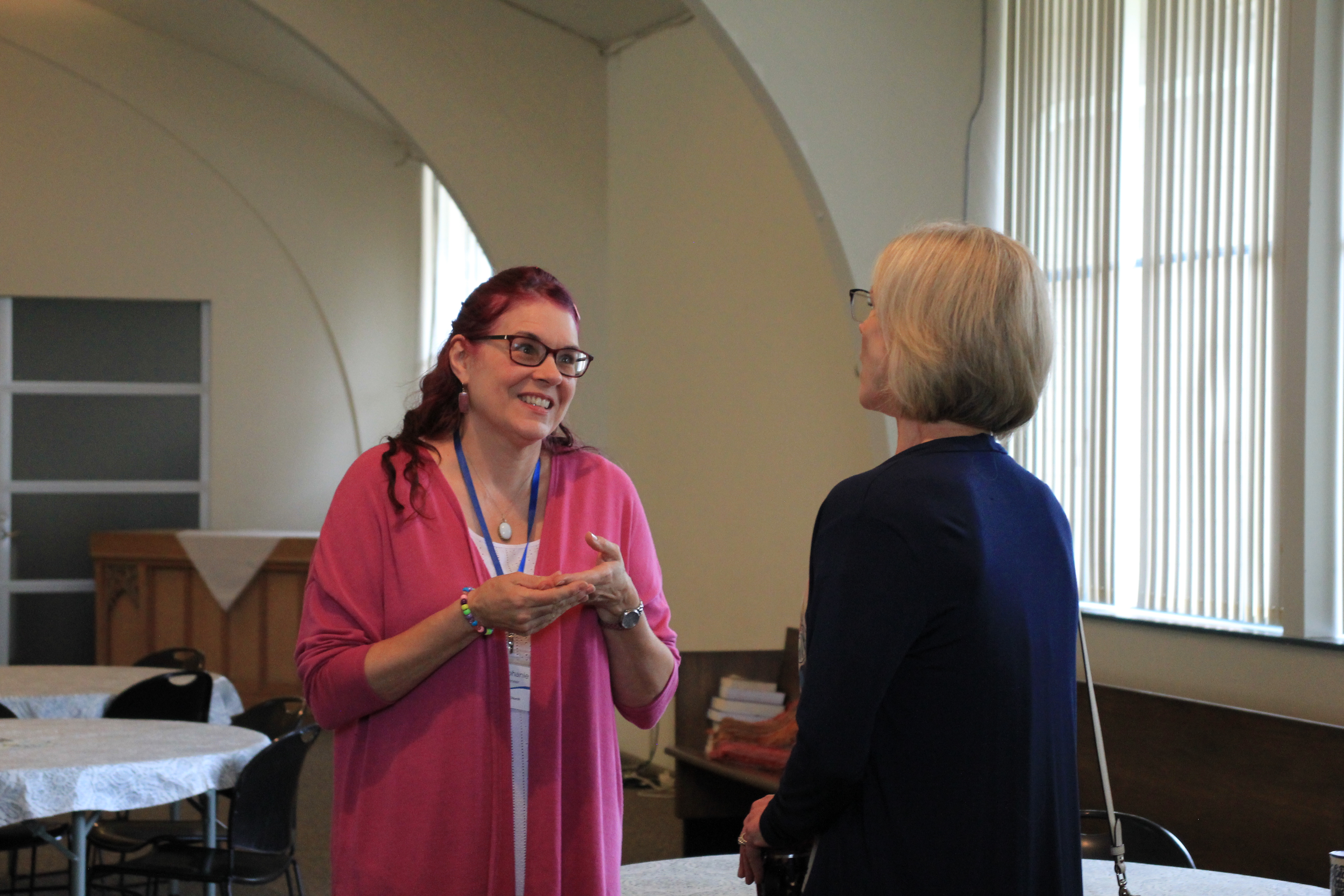Sign Up Here To Receive Our Monthly Newsletter, Including Our Pastor's
Monthly Message, by Email

What If You Literally Cannot Be “Good Enough”?
What Will You Be Instead?
The concept of “being good” is baked into our culture, especially in terms of our relationship with Christianity. I often hear people say, “The Bible tells us in plain English how to be good/live a good life.” Honestly, I profoundly disagree with this statement. The Book of James is about the closest thing I have found in the New Testament to fitting this description, and it is quite brief. I experience our Scriptures as an eclectic set of stories and ideas which invite us to reflect deeply on what “goodness” means and how it shows up in our lives. (If you didn’t know this by now, I think of “goodness” and God as functionally equivalent concepts).
The central problem with trying to “be good” is the question of “enough”. How good does one need to be in order to “be good”? A number of years ago, I articulated this problem as ‘The Tyranny of Righteousness’; no matter how “good” you are, you could always be better. Do you recycle? Why don’t you re-use? You re-use? Why don’t you stop consuming pre-packaged food? You buy whole foods? Why don’t you grow them yourself? This line of thinking goes on forever, and can be applied to every manifestation of “good” behavior, creating an arms race for earned worth. One member of Admiral recently told me about her tendency to “shame spiral”: after making a small mistake, her thoughts would lift up all the ways this proved she wasn’t “good enough”.
There is another way, my friends. And that other way leads us away from the questions of being good and being good enough. In Mark’s Gospel, a man comes to Jesus and asks, “Good teacher, what must I do to inherit eternal life?” Jesus replies, “Why do you call Me good? No one is good but God alone.” Even Jesus, the one person we might agree could rightly claim to “be good”, rejects the idea that He can be. Instead, Jesus consistently challenges His followers to embrace what has recently been termed a “growth mindset”. In a growth mindset, everything is an opportunity to learn, and every inability is tempered by a “yet” (I can’t consistently control my temper… yet; I can’t let go of my fear of failure… yet).
This last one is important; the secret of a growth mindset is the divorcing of “failing to achieve something” from “becoming a failure by doing so”. Just because I wasn’t able to make something happen doesn’t mean I am of less
value. If it did, I would never try anything I wasn’t certain I would succeed at, which would lead me to trying very little and never learning my true power and potential. Trying to be good enough requires the belief in its opposite, not being good enough. And this belief is what damns us, what shames and silences us, and what steals our joy, peace, and love. This belief harms God.
Our desire to be “good enough” is rooted in what Martin Luther called “works righteousness”, meaning trying to earn God’s love and blessing. This was the highest order of heresy to Luther, and should be for us as well. Why? Because it inherently negates the foundational principle of our faith- you are beloved of God and worthy of love, no matter what. If we stop trusting in that, we will justify all manner of harm to ourselves, others, creation, and to the name of God.Here’s the trip: you are not good. I am not good. People are not good, and neither are cats, belugas, trees, or the vacuum of space. No one is good but God alone. And yet, in the first story of creation, God looked upon all that had been made and called it good. Why? Because all of creation is interlaced with God’s goodness. God is part of it all, and when we encounter the goodness of a tree, or a beluga, or our mother, we are encountering the part of them that is deeply enmeshed in God.
Therefore, we are not going to try and be “good” or try to be “good enough”, because those concepts pervert the meaning and power of goodness. I am already enough, and I have at all times access to the Good, because it is inside me.
I am going to focus my attention instead on being connected to God/the Good (that which is beautiful, generous, patient, humble, gentle, strong, honest, pure, peaceable, etc.), and I will fail regularly at maintaining a perfect and complete integration. I honestly will fail regularly at reflecting even a modest amount of the Good that I have come to know in the world. And I will still be worthy, I will still be welcome, I will still be “enough”. This, my friends, is what a life of faith is: a willingness to trust in one’s belovedness and risk for the sake of Goodness. No matter where we go or what we do, if we root ourselves in these sacred truths, we will blossom and fruit in ways too wonderful to imagine or control. I pray this for all of you (and myself) who are “on the Way”.
In Peace and With Love,
Pastor Andrew

